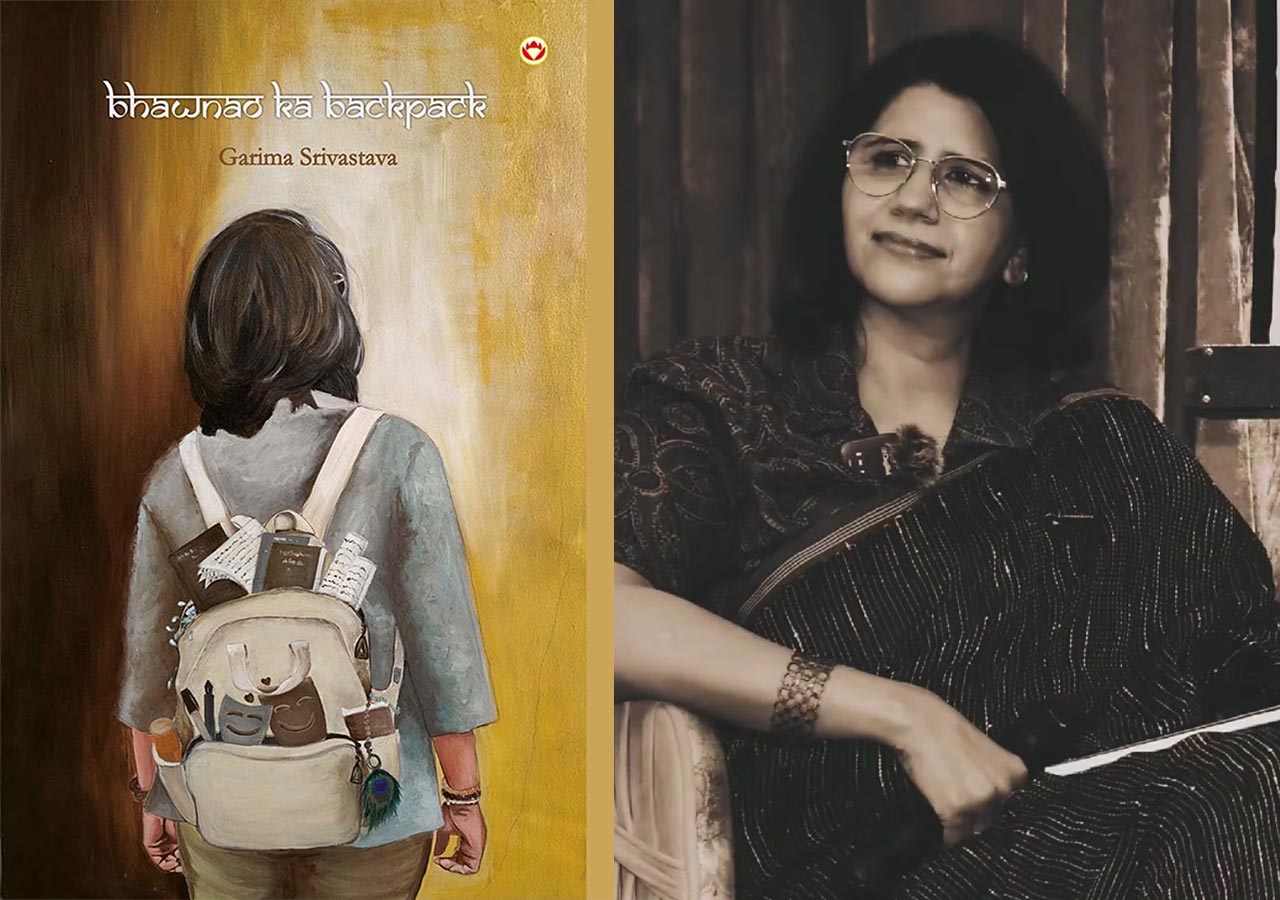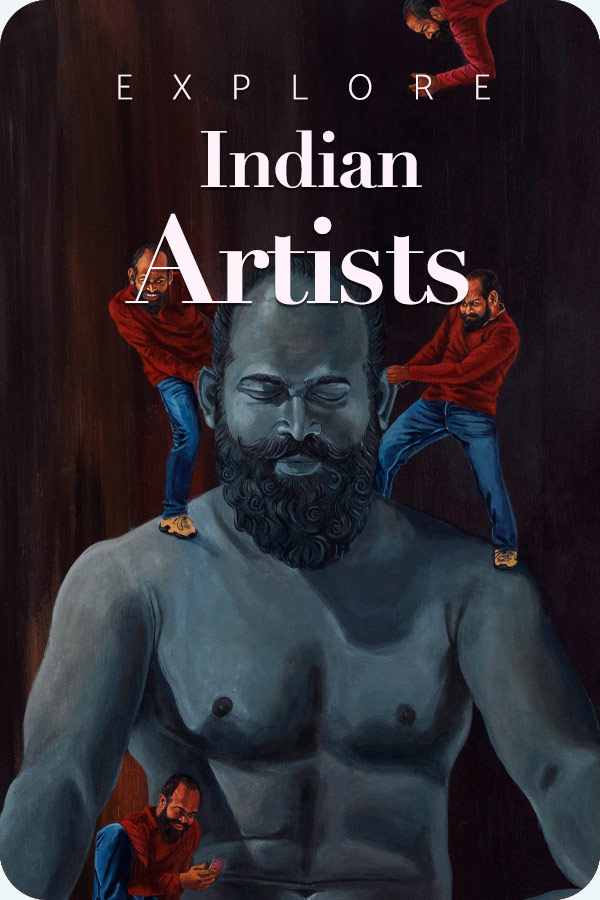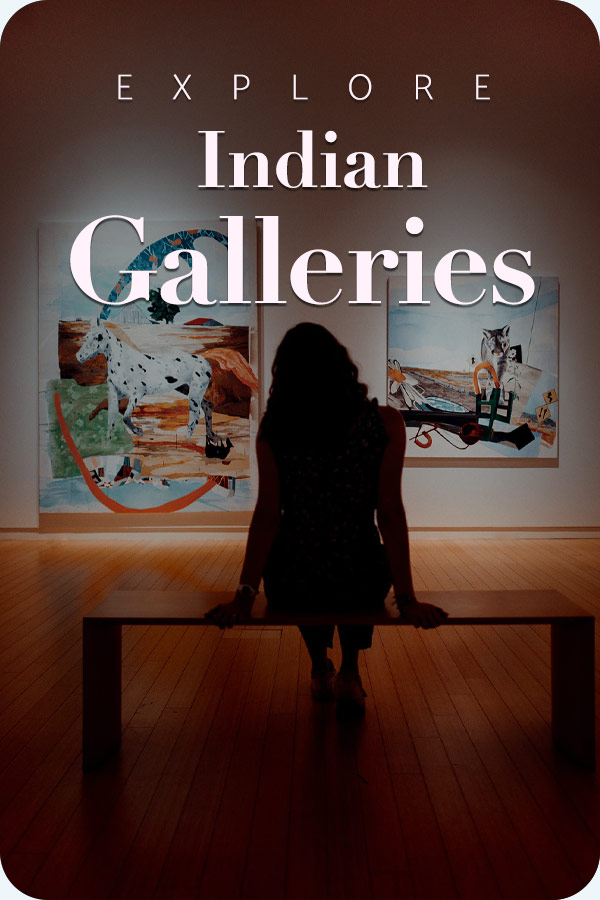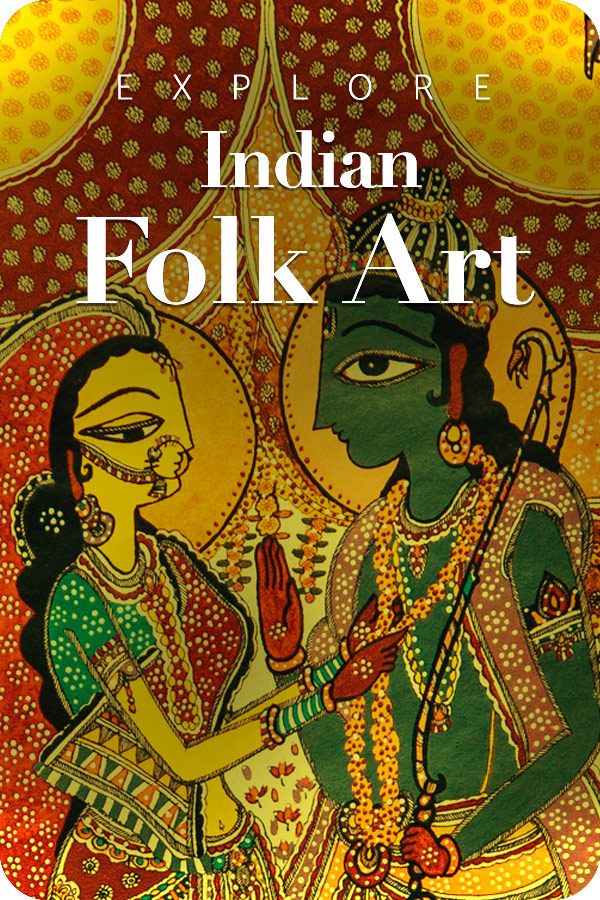
The universe is harmonious. Its synchronicity is unfailing and boundless. Since the past some time, we humans have learnt to celebrate our privilege of concurrently flowing in the ocean of our culture, our heritage of countless centuries; and of swimming in the sea of knowledge and opportunities the entire world offers. And bingo…here comes a book of poetry with some prose-content, written bilingually in Hindi and English. The pages (even Kindle ones!) are sprayed with saundhi mitti ki khushboo (the fragrance of soil after rain) – uncompromisingly Indian – but also transport you to forever horizons of emotions, convictions and desires which belong to Everyheart.
This was my first thought while I was reading bhawnao ka backpack (the backpack of emotions), by Garima Srivastava, a few days back. Garima is a Delhi-based poet with a background in education and library services. She has been writing passionately for many years for different platforms and purposes. She published this book now to reiterate that “Passion is for Purpose” (pg. 11), as she describes in the Introduction. Passion is a trait she has inherited from her parents, both of whom are well-known poets and also authors. They, other family members, and friends, encouraged her to fulfill its purpose after she had filed away numerous of her writings neatly into her “backpack”. But, as she puts it, the writings shook her awake and demanded the right to be seen and heard (pg. 9-10). She decided to give them all the hearing they deserved. The result is this full-blooded book in Hindi and English.
Each of the poems has a “prologue” or a prose-introduction which discusses its genesis; thus inextricably connecting the poetess and her readers. And as Pratap Somvanshi, the Managing Editor of Hindustan Hindi Daily, puts it in the Foreword, connecting one’s self to that of others in the world around one – this is perhaps the loftiest objective of poetry. This observation of the eminent poet, Octavio Paz, he feels, is the litmus test of any poetry. And Garima’s poems, he finds, are now passing that test with flying colours. Because the saga of each poem is the saga of life for all of us. In another Foreword, Naresh Shandilya, the famous poet, dramatist, critic and editor, finds the following lines to be representative of Garima’s connection to the secrets lurking inside all human souls. “The sea is just an illusion/Indeed it is our life./ Engulfed in dubious pleasures/Where nothing is for sure” (pg. 107-108; quoted on pg. 8).
This is what I also found endearing about her book. It speaks very matter-of-factly about the heart and its passions, desires, fears, losses and everything else between heaven and hell. It makes you feel relieved about being human; and caring about things no one else seems to give a penny for. It points out with a compassionate finger the masks all of us feel compelled to wear. For instance, some of us reading this may be authors. In her very first poem of the collection: Lekhak (writer), Garima says: “Teri abhivyakti to padkar/Kuchh bojh mera bhi halka hai/Aur bad jaate hain kadam mere…Kyun paakar teri rachna ko/Main khud se hi mil jaata hoon” (After I have read what you express in your writings/My burden has got a little lighter/And my steps move forward…After I have got to know your creation/Why do I get to meet myself?) (pg. 18).
Similarly, the poetess has got under many skins such as that of an all-consuming love which is not necessarily romantic; a woman in her “Soft, Gentle, Kind” incarnation and a woman in her Shakti incarnation; sublime but unrequited relationships; loneliness behind perfect pink-and-white faces; one-sided passion; and also passion which is shared; the sea battered by continuous environmental degradation; mother-daughter relationship; and so many others. In the same vein, amidst the aftermath of what has taken place in our country recently, the poem: Wait for Me strikes a deeply heartfelt reverberation. It is in the form of a soldier’s letter to his wife. This soldier was called for duty on the war-front just a little after his marriage. “For you, I risk scorching sand/For you, I’ll brave the borders/for you I’ll wait/for me you’ll crave/but we will be together” (pg. 73-74). I doubt if any eye will remain dry after reading this expression of love which is so duty-bound and so enduring. However, my personal favourite is Krishna whom the poetess invokes as the savior of all the Kurukshetras of past, present and future; not just of the Dwapar yug.
This collection of prose-poetry is for all of us whose emotions and expressions are not bound by language. For all of us who want to listen to our heart and talk about it too. The book is available in both print and digital formats. Sized and priced moderately, it is Garima’s first book-offering to the world, spanning 31 poems. The easy switch between the Hindi and English languages throughout the book may frazzle some readers, but not the bravehearts! As Garima says in Words: “feel your words so they can love/wrap them on your soul/hoity-toity mindless lash/thrust a piercing hole” (pg. 45). Nothing else matters.
By the way, Garima is also a content-creator, who transmutes her poetry to words and visuals on @bhawnao_ka_backpack (Instagram), thus carving another way to connect with the world around her.
Note: The image of the book-cover has been downloaded from: Amazon Website







